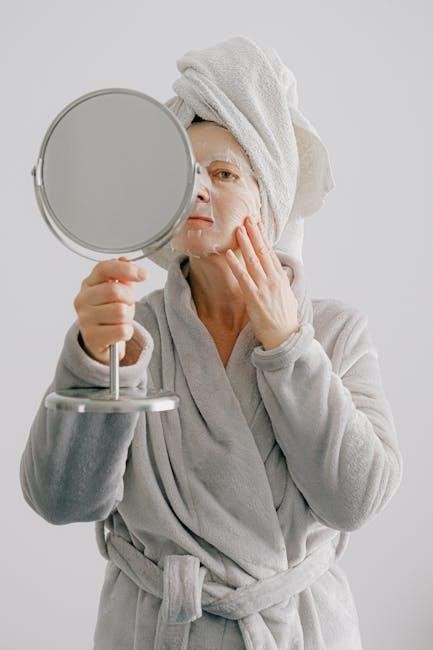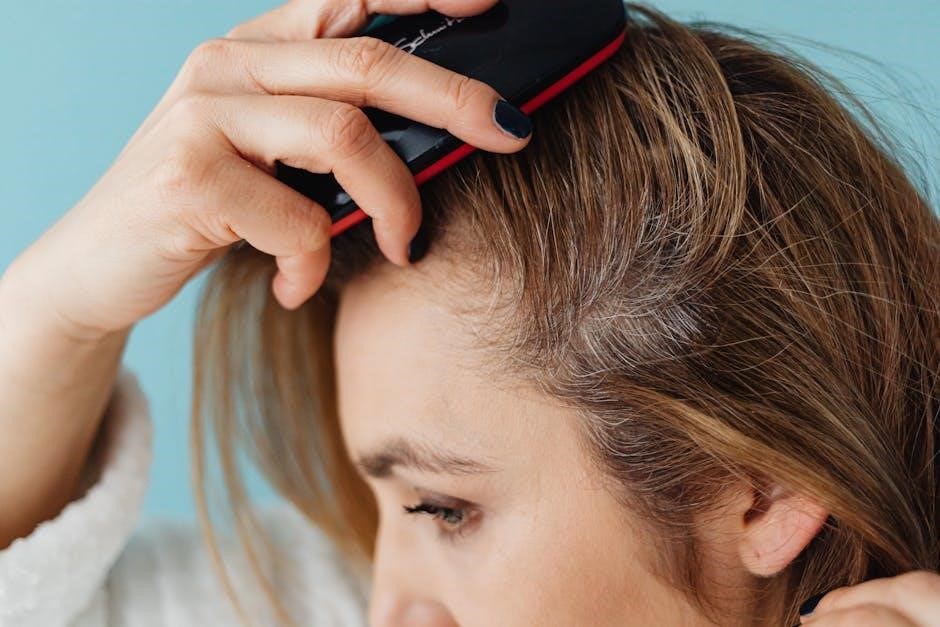Self-care is an essential practice for promoting physical, mental, and emotional health. It enhances well-being by fostering resilience, reducing stress, and improving overall life quality through intentional daily habits.
What is Self-Care?
Self-care is a conscious and intentional act of promoting one’s physical, mental, and emotional well-being through deliberate practices and habits. It involves taking care of oneself in a way that fosters resilience, reduces stress, and enhances overall quality of life. Self-care is not a one-size-fits-all concept; it varies depending on individual needs, preferences, and circumstances. It can include activities such as exercising, meditating, reading, or spending time with loved ones. The key is to engage in practices that nurture and recharge both the body and mind. By prioritizing self-care, individuals can better manage daily challenges, improve relationships, and cultivate a sense of balance and fulfillment in life. Essentially, self-care is about being kind to oneself and taking proactive steps to maintain holistic health.
Why Self-Care is Essential for Overall Well-being
Self-care is vital for maintaining overall well-being as it directly impacts physical, mental, and emotional health. By prioritizing self-care, individuals can reduce stress, enhance life balance, and improve resilience. It fosters a stronger connection between the body and mind, promoting better mental health and emotional stability. Self-care practices, such as meditation, exercise, and mindfulness, help individuals manage daily challenges more effectively. Neglecting self-care can lead to burnout, fatigue, and decreased productivity, making it essential to incorporate intentional habits into daily routines. Additionally, self-care strengthens relationships by allowing individuals to show up more fully for others. It is not selfish but a necessity for living a fulfilling and balanced life. By embracing self-care, individuals can cultivate a sense of well-being that supports long-term health and happiness.
Understanding the Self-Care Wheel
The Self-Care Wheel is a tool for organizing self-care activities across key life dimensions, helping individuals prioritize and maintain holistic well-being through structured, personalized practices.
What is the Self-Care Wheel?
The Self-Care Wheel is a practical tool designed to help individuals assess and improve their self-care habits. It categorizes self-care into various dimensions, such as physical, emotional, mental, and spiritual well-being. By evaluating each area, users can identify strengths and areas needing attention. The wheel serves as a visual guide, making it easier to create a balanced self-care plan. It encourages personal reflection and intentional actions to enhance overall health. Regular use of the Self-Care Wheel helps maintain consistency in self-care routines, ensuring a holistic approach to well-being. Its simplicity and adaptability make it accessible for anyone seeking to prioritize their health and happiness.

How to Use the Self-Care Wheel for Personal Growth
The Self-Care Wheel is a versatile tool for fostering personal growth by helping individuals identify and address areas of their well-being that may need attention. Start by assessing each dimension of the wheel, such as physical, emotional, and mental health, to pinpoint gaps in your self-care routine. Use the insights gained to create a checklist of activities tailored to your needs, ensuring a balanced approach. Track your progress regularly and adjust your actions as needed. The wheel encourages accountability and mindfulness, making it easier to prioritize self-care. By leveraging the Self-Care Wheel, you can develop sustainable habits that nurture your overall well-being and support long-term personal development. Its adaptability allows you to customize it according to your lifestyle and goals, making it an invaluable resource for continuous growth.

Creating a Self-Care Checklist
A self-care checklist is a practical tool to ensure consistency and mindfulness in nurturing your well-being. It helps track daily, weekly, and themed activities tailored to your needs, promoting accountability and balance in maintaining physical, mental, and emotional health through structured routines and personalized goals.
Types of Self-Care Checklists (Daily, Weekly, Themed)

Self-care checklists come in various forms to suit different needs and preferences. Daily checklists focus on simple, consistent habits like meditation, hydration, and sleep, ensuring small but impactful routines. Weekly checklists offer flexibility, allowing you to plan activities like exercise, reading, or spending time in nature. Themed checklists cater to specific goals, such as mental health, relaxation, or personal growth, providing targeted practices. These structured lists help individuals stay organized and committed to their well-being. By incorporating these tools, one can create a balanced and sustainable self-care routine tailored to their lifestyle and objectives.
How to Customize Your Self-Care Checklist
Customizing your self-care checklist involves tailoring it to your unique needs and preferences. Start by identifying your personal goals, such as improving sleep, reducing stress, or enhancing mental clarity. Next, assess your current habits and pinpoint areas for improvement. Choose activities that resonate with you, whether it’s meditation, journaling, or spending time outdoors. Consider your schedule and energy levels to ensure the checklist is realistic and achievable. You can also personalize the design by adjusting fonts, colors, and layouts to make it visually appealing. Additionally, incorporate themes or categories, such as daily, weekly, or seasonal tasks, to maintain variety and engagement. Regularly review and update your checklist to reflect changes in your life and priorities, ensuring it remains a dynamic tool for your well-being.

Practical Self-Care Activities
Engage in activities that nurture your body, mind, and spirit, such as meditation, journaling, exercise, and connecting with nature, to promote holistic well-being and balance in daily life.
Physical Self-Care Ideas
Physical self-care is vital for maintaining overall health and energy levels. Start by eating regular, balanced meals and choosing nutritious foods to fuel your body. Incorporate consistent exercise, such as walking or yoga, to boost mood and strength. Prioritize sleep by creating a restful bedtime routine and aiming for 7-9 hours of quality sleep each night. Stay hydrated by drinking plenty of water throughout the day. Schedule regular medical check-ups to monitor and improve your health. Practice good hygiene, such as showering, brushing your teeth, and caring for your skin, to feel refreshed and confident. Engage in activities that bring physical comfort, like stretching or getting a massage, to reduce tension and promote relaxation. These simple yet effective habits form the foundation of a strong physical self-care routine.
Mental and Emotional Self-Care Practices
Mental and emotional self-care involves nurturing your inner well-being through intentional practices. Start with mindfulness or meditation to calm your mind and stay present. Journaling is another powerful tool—write about your thoughts, gratitudes, or daily reflections to process emotions. Engage in activities that bring joy, such as reading, listening to music, or watching a favorite show. Practice self-compassion by speaking kindly to yourself and avoiding self-criticism. Connecting with loved ones or joining a supportive community can also uplift your emotional health. Take breaks from technology and carve out time for relaxation or hobbies that spark creativity, like painting or puzzles. Setting boundaries to protect your mental space is equally important. These practices help reduce stress, improve mood, and foster emotional resilience, ensuring a balanced and fulfilling life.
